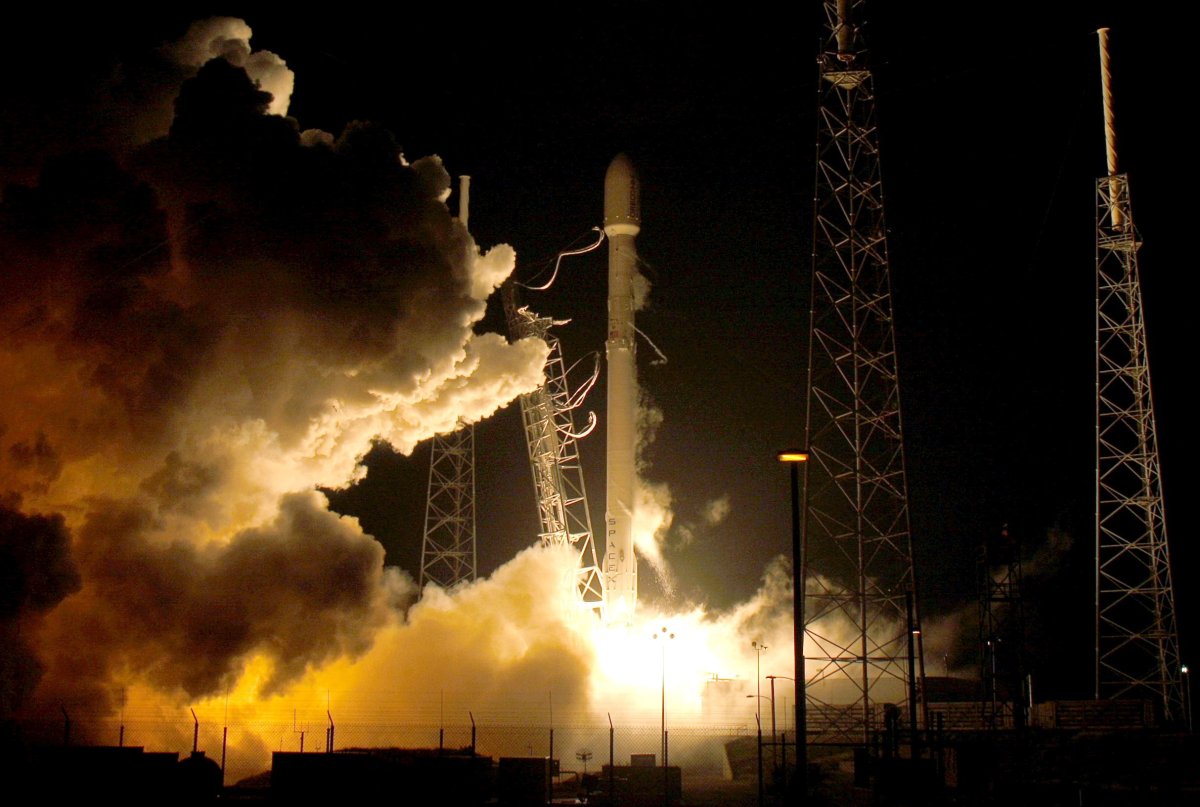SpaceX, the rocket company spearheaded by Elon Musk, successfully launched another Falcon 9— carrying a Telstar 18 Vantage satellite—in the early hours of Monday.
To the sound of applause, the rocket was fired at 12:45 a.m. (EDT) from Space Launch Complex 40 at Cape Canaveral Air Force Station, Florida. The Vantage, a telecommunications satellite, boosted to a Geostationary Transfer Orbit (GTO), deploying 32 minutes after liftoff.
The first stage of SpaceX's Falcon 9 later completed a landing on the Of Course I Still Love You droneship that is stationed in the Atlantic Ocean, the company confirmed. The droneship, which was named in honor of sci-fi author Iain Banks, is a remote landing platform for the rocket.
The payload, SpaceX said in a release ahead of launch, would provide customers of Canadian satellite communications company Telesat with "a new level of performance and value."
The Falcon 9 launch was live-streamed to the world, showing the dramatic countdown in real-time. "Liftoff!" the company's official Twitter account wrote triumphantly this morning.
Liftoff! pic.twitter.com/xdJXpNTKXu
— SpaceX (@SpaceX) September 10, 2018
The takeoff was the 16th SpaceX mission this year, technology website Ars Technica reported. According to Space.com, it faced a 77-minute delay that was blamed on weather conditions.
The Telstar 18 Vantage, designed to provide enhanced coverage to customers in the Asia Pacific region, will replace and expand on the capabilities of Telesat's Telstar 18 satellite.
"The coverage of Telesat's newest satellite reaches across Asia all the way to Hawaii…enabling direct connectivity between any point in Asia and the Americas," a release stated.
"Its payloads of HTS spot beams and focused regional beams will provide customers operating in Southeast Asia, Mongolia, Australia & New Zealand, and the North Pacific Ocean with greater choice and flexibility to serve today's bandwidth intensive applications," it continued.
On July 22, SpaceX confirmed that it had successfully launched a Telstar 19 Vantage satellite from the same Florida facility. The satellites were built by SSL, a Maxar Technologies firm, and have a 15-year lifespan. The newly-launched Telstar 18 Vantage will now face orbital testing.
Ars Technica reported this week that SpaceX's next mission will be the flight of an Argentinian satellite from California that is scheduled to take place after a month-long break in operations.
Falcon 9 is the first orbital class rocket capable of re-flight. Customers include commercial satellite companies. It also runs national security missions for the U.S. government.
"SpaceX believes rocket reusability is the key breakthrough needed to reduce the cost of access to space and enable people to live on other planets," the company says on its website.

Uncommon Knowledge
Newsweek is committed to challenging conventional wisdom and finding connections in the search for common ground.
Newsweek is committed to challenging conventional wisdom and finding connections in the search for common ground.
About the writer
Jason Murdock is a staff reporter for Newsweek.
Based in London, Murdock previously covered cybersecurity for the International Business Times UK ... Read more
To read how Newsweek uses AI as a newsroom tool, Click here.








